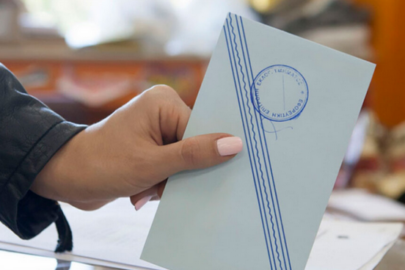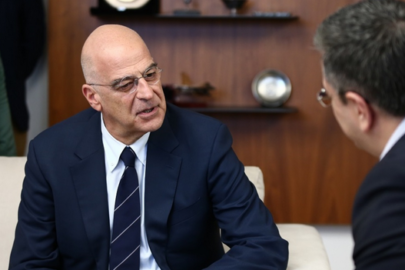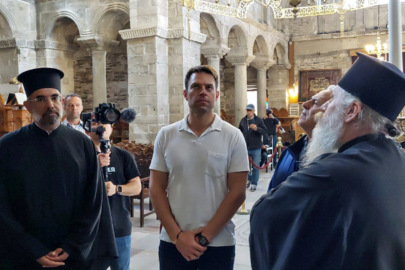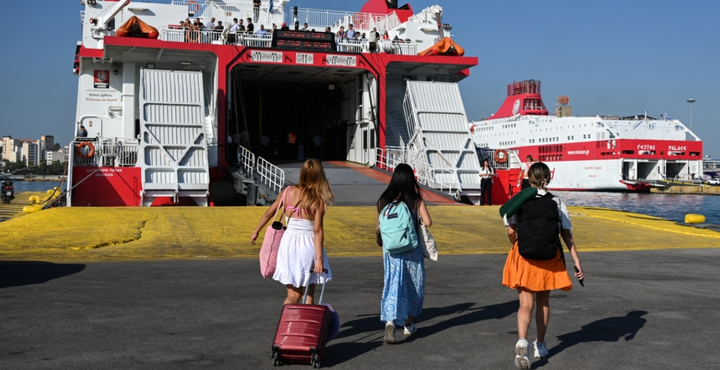In his sun-filled office in north Nicosia, Şener Elcil is plotting his next protest. Anger, he says, is in the air in Turkish-occupied northern Cyprus.
The economy is in freefall, thanks to the self-declared republic’s financial and political dependence on Turkey. Thousands have taken to the streets, spurred by inflation rates that have left many struggling to make ends meet; ahead of parliamentary polls later this month, calls for a boycott are mounting, while a blacklist of Turkish Cypriot dissidents, reportedly drawn up at the behest of Ankara, has spawned consternation and fear.
“Turkey is our biggest problem,” says Elcil, who heads the Turkish Cypriot teachers’ union and is a vocal proponent of reunification of the war-divided island under a federal umbrella with the Greek-run south. “It should keep its hands off Cyprus and take its lira and go away”.
Elcil, 58, is among the statelet’s most outspoken opponents of the Turkish president, Recep Tayyip Erdoğan, and his unorthodox economic policies.
The recent gyrations of the Turkish lira – adopted by the territory in 1976, two years after the Turkish invasion – have had a devastating effect on daily life for a populace that remains under international embargo and cut off from the rest of the world. The use of foreign currency for property transactions and the purchase of imported goods has made a bad situation worse – even if the lira has regained some of its dramatic loss in value against the dollar.
Amid rising desperation, along with demands for the entity to adopt a “stable” currency, Elcil is far from alone.
“People are tired of international isolation, and they’re aware that it will only get worse,” he says. “Five years ago, a teacher first entering our system earned the equivalent of €1,100 (£920) a month. Today, because of the lira, they’d take home €350 a month”.
6 Athenian cafés for a warm, wintery atmosphere
The protests come as hopes of reuniting Cyprus have rarely been as bleak. Last week, nearly 15 months after Ersin Tatar, a nationalist hardliner, won presidential elections in the north, the UN secretary general, António Guterres, issued his starkest report yet, warning that “without decisive action” further efforts to reach a negotiated peace settlement appeared increasingly slim.
“Partition is so close,” says Izzet Izcan, who heads the United Cyprus party, one of three leftwing groups that have announced they will be abstaining from the 23 January parliamentary vote. “Tatar is Ankara’s puppet who was elected only after Turkey intervened in our democratic process. His pro-partition policies are not in the interests of our community. The only way to oppose them is to fight all together.”
In the 38 years since the breakaway republic unilaterally declared independence, Turkey’s interference in the entity’s affairs had never been as flagrant, claimed Izcan, echoing a widely voiced concern. “Elections are no longer representative of the real will of ordinary Turkish Cypriots. They’re like a game planned and played by Turkey,” the former MP said. “Our main problem is political. Our economic difficulties are the result of a political situation, of Turkey continuing its military occupation of the north by means of the lira.”Cyprus has been split between a Greek Cypriot south and Turkish Cypriot north since an Athens-backed coup, aimed at union with Greece, prompted Ankara to launch a military operation to seize its northern third. Although Turkish Cypriots voted in favour of reunification in a referendum in 2004, the island entered the EU as a divided state after its majority Greek Cypriot population rejected the prospect of power sharing. Until reunification is achieved, EU laws are suspended in the north despite it also formally being part of the bloc.
Read more: The Guardian




































